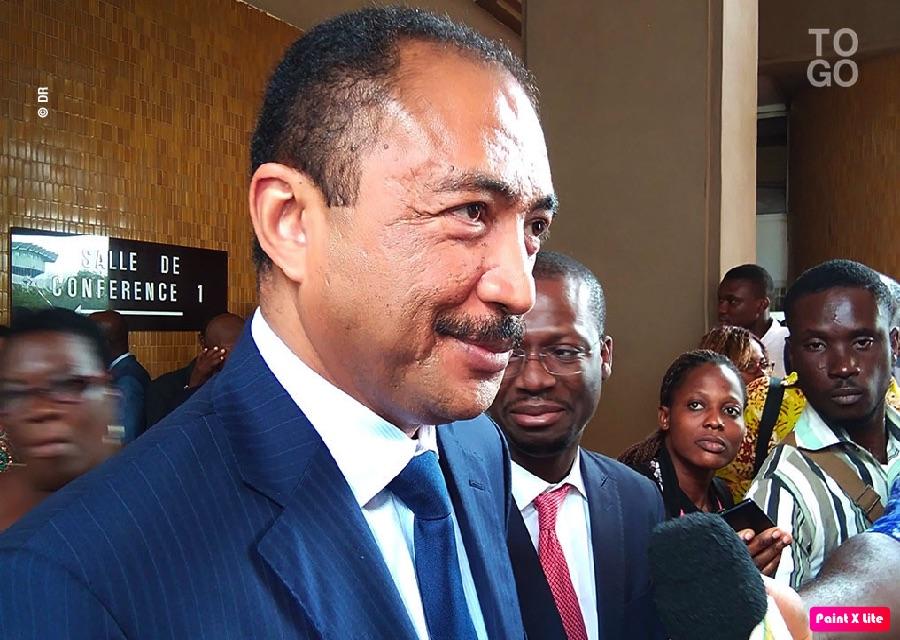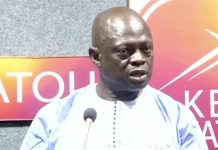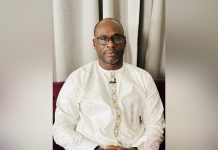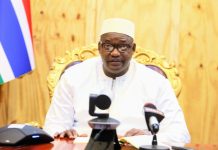Africa-Press – Gambia. The economy is showing some early signs of recovery, but the third wave of COVID-19 is weighing on a vigorous rebound, International Monetary Fund (IMF) staff said in their end of mission statements.
IMF staff teams made this statement at their preliminary findings after a visit to the country, saying that the government continues to take the necessary measures to fight the pandemic.
A statement made available to The Voice Wednesday stated that performance under the Extended Credit Facility (ECF)-supported program has been good. “Budget management remains prudent and monetary policy is appropriately accommodative. Structural reforms are advancing, albeit with delays in some areas.
Accelerating the vaccine rollout, better targeting of social programs, improving the business environment, unlocking the potential of digitalization, and adopting gender and climate oriented policies will support an inclusive, robust, and sustainable recovery,” the statement said.
According to the statement, a team from the International Monetary Fund (IMF), led by Mr. Ivohasina Fizara Razafimahefa, Mission Chief for The Gambia, held a virtual mission with the Gambian authorities during September 9th-22nd, 2021 to conduct the 2021 Article IV consultation and discuss the third review of The Gambia’s economic program supported by the IMF’s Extended Credit Facility (ECF).
At the conclusion of the mission, Mr. Razafimahefa said: “The mission team made significant progress in agreeing with the authorities on the financial and economic policies that could support the completion of the third review of the ECF program. Performance under the ECF program was good despite the challenges caused by the COVID-19 pandemic. All quantitative performance criteria at end-June 2021 were met. Structural reforms are advancing, albeit with delays in some areas. Discussions will continue in the coming days, particularly on the 2022 budget, with a view to submitting the program review to the IMF Executive Board for approval. Upon this approval, SDR5 million (about US$7 million) will be made available to The Gambia.”
He also said the Extended Credit Facility (ECF) provides financial assistance to countries with protracted balance of payments problems. It supports countries’ economic programs aimed at moving toward a stable and sustainable macroeconomic position consistent with strong and durable poverty reduction and growth. The ECF may also help catalyze additional foreign aid.
“Economic growth stood at -0.2 percent in 2020 primarily due to a sharp decline in the tourism sector, partly cushioned by good agricultural production and robust private construction financed by record-high remittances. Economic activity is showing early signs of recovery, but the third wave of the pandemic is weighing on a vigorous rebound. Inflation increased during the first half of 2021 but decelerated to 6.9 percent (year-on-year) in August 2021. Strict cash management helped contain the fiscal deficit at about 2.5 percent of GDP at end-June 2021 despite weak revenue collection and delays in budget support. The Central Bank continues to maintain an accommodative monetary policy stance; credit to the private sector expanded by 5.7 percent (year-on-year) in June 2021. Foreign exchange reserves strengthened further, exceeding 5 months of prospective imports in August 2021, also reflecting the recent SDR allocation.
“The Gambian authorities are delivering on their commitments to full transparency of COVID19-related spending. They published the list of all COVID 19-related procurement contracts and their beneficiary owners up to end-June 2021 on the Gambia Public Procurement Agency’s (GPPA) website. The National Audit Office (NAO) has completed the first phase of an ex-post audit of COVID-19 spending and it is now conducting the second phase of the audit. Good progress has also been made on strengthening revenue administration and public financial management, including on rationalizing tax expenditures, digitalizing tax systems and budget processes, improving debt management, and enhancing the Central Bank internal audit. The performance of some key State-Owned Enterprises is also improving.
“Going forward, economic growth is expected at around 4.9 percent in 2021 and strengthening further in the medium term to an average of 6 percent per year. These projections are conditioned by a rapid expansion of vaccination coverage, gradual recovery in tourism, and continued good performance of private construction and agriculture. The authorities are committed to using the one-off revenue from the petroleum sector and a part of the recent SDR allocation to fight against the COVID-19 pandemic and support the post-pandemic recovery, including closing the infrastructure gap and supporting gender and climate-oriented policies, while reducing debt vulnerabilities,” he stated.
He later disclosed that the mission team held discussions with Minister of Finance and Economic Affairs Mambury Njie, Governor of the Central Bank of The Gambia Buah Saidy, senior staff of the Ministry of Finance and Economic Affairs; the Central Bank of The Gambia; the Ministries of Health, Agriculture and Fishery, Transport Works and Infrastructure, Justice, Petroleum and Energy, Tourism and Culture, Environment and Climate Change, Trade Industry and Regional Integration, and Information and Communication; and some state-owned enterprises.
For More News And Analysis About Gambia Follow Africa-Press






